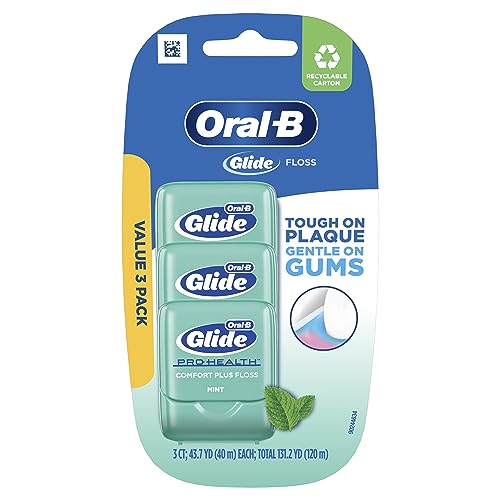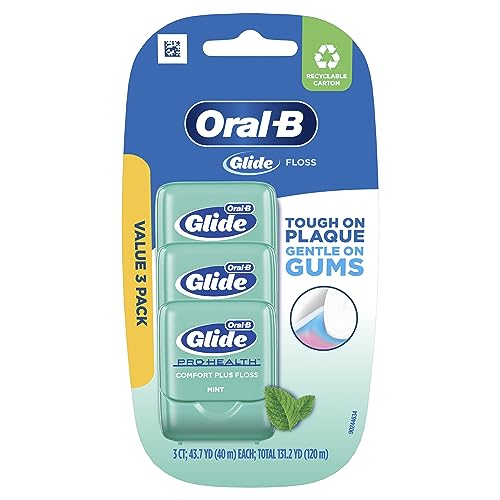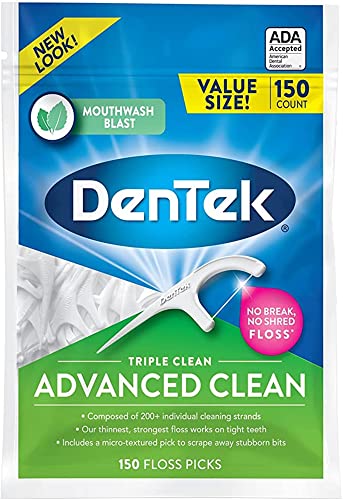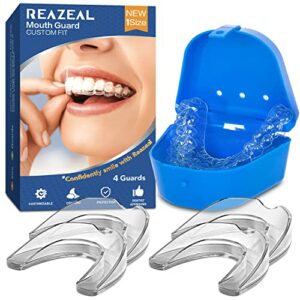Dear readers,
Today, we want to shed light on a topic that often goes unnoticed in our daily lives but could have a significant impact on our overall health: dental flossing. We understand that the idea of flossing may not always be met with enthusiasm, but we want you to know that we are right there with you. We know that it can be a hassle and easily forgotten amidst our busy schedules. However, we believe it is crucial to discuss this matter because the link between dental flossing and our overall well-being is undeniable. In this blog post, we aim to explore this connection, explain its importance, and hopefully motivate and empower you to incorporate this simple yet vital practice into your daily routine. So, let’s dive in together and discover the many ways dental flossing can positively impact not only our oral health but also our general wellness.
Find the Perfect Dental Floss for a Healthy and Happy Smile
The importance of dental flossing
Maintaining good oral hygiene is essential for overall health and well-being. While brushing your teeth twice a day is a crucial part of oral care, it is equally important to incorporate flossing into your daily routine. Dental flossing may seem like a trivial task, but its significance in preventing dental issues cannot be overstated.
Preventing Plaque Buildup
Plaque, a sticky film of bacteria, constantly forms on our teeth. If left unchecked, this buildup can lead to a host of oral health problems. Regular flossing helps remove plaque from areas that your toothbrush cannot reach, such as the tight spaces between your teeth and along the gumline.
Avoiding Tooth Decay
When plaque is not removed, it can produce acids that attack the tooth enamel, leading to tooth decay. Flossing, in combination with brushing, can effectively remove plaque and significantly reduce the risk of cavities. By incorporating flossing into your oral care routine, you provide your teeth with an extra layer of protection against decay.
Preventing Gum Disease
Failure to remove plaque can also result in gum disease, also known as periodontal disease. Gum disease starts with gingivitis, characterized by inflamed gums that may bleed easily. If left untreated, it can progress to periodontitis, which can cause gum recession, tooth loss, and other serious complications. Flossing helps remove plaque from the gumline, reducing the risk of gum disease and promoting healthy gums.
Additional Benefits of Flossing
Apart from the prevention of tooth decay and gum disease, flossing offers several other benefits for maintaining optimal oral health:
- Freshens Breath: Flossing removes food particles and bacteria that contribute to bad breath, leaving you with a fresh and clean mouth.
- Improves Overall Health: Studies have shown a connection between oral health and overall health. Maintaining good oral hygiene, including regular flossing, can help reduce the risk of heart disease, diabetes, and other systemic conditions.
- Saves Money: By preventing dental issues, such as cavities and gum disease, regular flossing can save you from costly dental treatments down the line.
How to Floss Properly
To reap the benefits of flossing, it is important to do it correctly. Follow these steps for effective flossing:
- Take approximately 18 inches of dental floss and wrap most of it around your middle fingers, leaving a small section to work with.
- Gently slide the floss between your teeth, using a back-and-forth motion.
- Curve the floss into a C shape around each tooth and move it up and down to remove plaque and debris.
- Use a clean section of floss for each tooth to avoid spreading bacteria.
- Be thorough but gentle to avoid injuring your gums.
The connection between oral health and overall health
Maintaining good oral hygiene is not only important for a beautiful smile, but it also plays a crucial role in our overall health. Many people overlook the fact that poor oral health can contribute to various systemic conditions, ranging from heart disease to pregnancy complications. In this blog section, we will explore the link between oral health and overall health, highlighting the consequences of neglecting oral hygiene.
Heart Disease and Oral Health
Research has shown a strong association between oral health and heart disease. The bacteria found in dental plaque can enter the bloodstream through bleeding gums, causing inflammation and potentially leading to the development of cardiovascular problems. Moreover, individuals with gum disease are more likely to have atherosclerosis (hardening of the arteries) and an increased risk of heart attacks and strokes.
Diabetes and Oral Health
People with diabetes are more prone to gum disease, and it works both ways – gum disease can also affect blood sugar control, making diabetes harder to manage. The relationship between diabetes and oral health is a two-way street, emphasizing the importance of maintaining good oral hygiene for individuals with diabetes.
Respiratory Problems and Oral Health
Poor oral health can also have an impact on our respiratory system. Bacteria present in the mouth can be inhaled into the lungs, leading to infections, pneumonia, and exacerbating existing respiratory conditions such as chronic obstructive pulmonary disease (COPD). Maintaining proper oral hygiene can help reduce the risk of respiratory problems and improve overall lung health.
Pregnancy Complications and Oral Health
Pregnant women need to pay special attention to their oral health, as poor oral hygiene has been linked to pregnancy complications. Periodontitis, a severe form of gum disease, has been associated with premature birth, low birth weight, and gestational diabetes. Taking care of your oral health during pregnancy is not only beneficial for the mother but also for the baby’s well-being.
Importance of Regular Dental Check-ups
Regular dental check-ups are vital in maintaining good oral health and preventing systemic conditions. During these visits, your dentist can detect early signs of gum disease, cavities, and other oral health issues. They can also educate you on proper oral hygiene techniques and provide personalized advice tailored to your needs.
Key Points to Remember:
- Poor oral hygiene can contribute to heart disease, diabetes, respiratory problems, and pregnancy complications.
- Bacteria from dental plaque can enter the bloodstream, causing inflammation and cardiovascular problems.
- Individuals with diabetes are more prone to gum disease, and gum disease can also affect blood sugar control.
- Bacteria from the mouth can be inhaled into the lungs, leading to respiratory infections and exacerbating existing conditions.
- Pregnancy complications such as premature birth and low birth weight have been linked to poor oral health.
- Regular dental check-ups are crucial in maintaining good oral health and preventing systemic conditions.
Remember, taking care of our oral health is not just about having a beautiful smile; it has a significant impact on our overall well-being. By prioritizing oral hygiene and seeking regular dental care, we can reduce the risk of developing systemic conditions and improve our overall health.
Research supporting the benefits of dental flossing
Maintaining good oral hygiene is essential for overall health, and dental flossing plays a significant role in achieving it. While brushing your teeth is crucial for removing plaque from the surfaces, flossing helps to effectively clean the areas between your teeth and along the gumline, where your toothbrush cannot reach. In this blog section, we will explore the scientific evidence and studies that demonstrate the positive effects of regular dental flossing on both oral and overall health.
Removing Bacteria and Plaque Buildup
One of the primary benefits of dental flossing is its ability to remove bacteria and plaque buildup from the areas that brushing alone cannot access. Here’s how flossing helps:
- Reduces the risk of cavities: Flossing removes plaque and food particles that can lead to the formation of cavities.
- Prevents gum disease: The buildup of plaque along the gumline can cause gum inflammation and, if left untreated, may progress to gum disease. Flossing helps remove plaque from these areas, reducing the risk of gum disease.
- Fights bad breath: Bacteria in plaque release foul-smelling gases, contributing to bad breath. Flossing removes plaque, reducing the presence of these odor-causing bacteria.
Reducing Inflammation and Preventing Infections
Regular dental flossing not only helps maintain oral health but also contributes to overall well-being. Research has shown the following positive effects:
- Reduces gum inflammation: When plaque accumulates along the gumline, it can cause the gums to become inflamed. Flossing helps remove plaque and reduce inflammation, promoting healthier gums.
- Lowers the risk of systemic diseases: The inflammation caused by gum disease has been linked to an increased risk of developing systemic conditions such as heart disease, diabetes, and respiratory infections. By preventing gum disease through regular flossing, you may also be reducing the risk of these serious health issues.
Scientific Studies Supporting Dental Flossing
Several scientific studies have demonstrated the benefits of regular dental flossing. Here are a few noteworthy findings:
- A study conducted by the American Dental Association (ADA) found that flossing, when combined with brushing, was significantly more effective at reducing plaque and preventing gum disease compared to brushing alone.
- According to a study published in the Journal of Clinical Periodontology, regular flossing was associated with a reduced risk of developing gum disease, leading to improved overall oral health.
- Research published in the Journal of Periodontology showed that flossing can reduce gum inflammation and bleeding, contributing to healthier gums.
Tips for effective dental flossing
Maintaining good oral hygiene is essential for a healthy smile, and dental flossing plays a crucial role in this routine. Regular flossing helps remove plaque and food particles from between your teeth and along the gumline, preventing cavities, gum disease, and bad breath. In this blog section, we will provide practical advice on proper flossing techniques, the different tools you can use, and additional oral hygiene practices to complement flossing.
Proper Flossing Techniques
To ensure that your flossing is effective, it’s important to follow the correct techniques. Here are some tips to help you floss like a pro:
- Start with an 18-inch piece of dental floss: Using a sufficient length of floss allows you to use a clean section for each tooth, preventing the spread of bacteria.
- Hold the floss correctly: Wind most of the floss around your middle fingers, leaving an inch or two for flossing. Use your thumbs and index fingers to guide the floss gently between your teeth.
- Glide the floss gently: Slide the floss up and down along the sides of each tooth, forming a C-shape around the tooth to reach just below the gumline. Be careful not to snap or force the floss, as this can cause gum irritation.
- Use a clean section for each tooth: After flossing one tooth, unwind a fresh section of floss for the next tooth. This prevents transferring bacteria and debris from one tooth to another.
Choosing the Right Flossing Tool
There are various tools available to aid in dental flossing, and choosing the right one can make the process easier and more effective. Here are some options to consider:
Dental Floss
Traditional dental floss is a thin string made of nylon or plastic that effectively cleans between teeth. It is available in waxed or unwaxed forms, flavored or unflavored, and comes in different thicknesses to suit individual preferences. Dental floss is a cost-effective option and provides maximum control for reaching tight spaces between teeth.
Floss Picks
Floss picks, also known as flossers or floss holders, are small plastic devices that hold a short piece of floss between two prongs. They offer convenience and ease of use, especially for those who struggle with traditional flossing techniques. Floss picks are great for on-the-go use and can be handy for reaching the back teeth.
Water Flossers
Water flossers, also called oral irrigators, use a steady stream of water to remove plaque and debris from between teeth. This tool is a good alternative for individuals with braces, dental implants, or other dental work that makes traditional flossing challenging. Water flossers are also helpful for those with sensitive gums. However, it’s important to note that they should not replace traditional flossing altogether, but rather complement it.
Frequency and Duration of Flossing
To reap the maximum benefits of flossing, it’s important to establish a consistent routine. Here are some guidelines to follow:
- Floss at least once a day: Regular flossing removes plaque buildup and helps prevent gum disease and tooth decay. Aim to floss every day, preferably before bedtime, to remove any trapped food particles.
- Take your time: Proper flossing takes time and attention. Spend at least two to three minutes flossing your teeth, ensuring that you reach all areas. Be gentle to avoid injuring your gums.
Complementary Oral Hygiene Practices
In addition to flossing, there are other oral hygiene practices that can further enhance your dental health. Consider incorporating the following into your routine:
- Brushing twice a day: Brushing your teeth for two minutes, morning and night, helps remove plaque and bacteria from the surfaces of your teeth. Use a soft-bristled toothbrush and fluoride toothpaste for optimal results.
- Mouthwash: Using an antimicrobial mouthwash can help kill bacteria and freshen your breath. Choose an alcohol-free mouthwash to avoid drying out your mouth.
- Regular dental check-ups: Schedule regular visits to your dentist for professional cleanings and check-ups. Your dentist can detect any oral health issues early on and provide personalized advice based on your dental needs.
The Importance of Dental Flossing for a Healthy Body
In conclusion, we have explored the important link between dental flossing and overall health. We have learned that flossing not only helps maintain healthy teeth and gums, but also plays a significant role in preventing diseases such as heart disease, diabetes, and respiratory issues. It is clear that incorporating dental flossing into our daily oral care routines is crucial.
To ensure optimal oral and overall health, we strongly recommend regular dental check-ups and professional cleanings. These visits allow for early detection and treatment of any dental issues, as well as provide guidance on proper flossing techniques.
Let us remember that good oral hygiene goes beyond just brushing our teeth. By making dental flossing a regular habit, we are taking proactive steps towards a healthier lifestyle. So let’s prioritize our oral health and make flossing an integral part of our daily routine. Your teeth and your body will thank you!




















